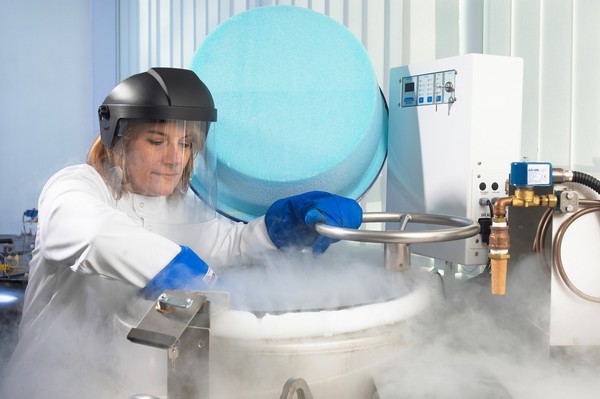Researchers investigating the latest developments in crop protection now have a new tool available to help support their work. The National Reference Collection was recently launched by Government Agri-Tech Innovation Centre CHAP, in partnership with CABI and Fera. The first of its kind for the UK, the Collection offers both access to and storage of valuable live isolates of fungi and bacteria.
For those involved in product development and academic research, crop-related microorganisms can be deposited within the Collection, which deploys state-of-the-art cryopreservation and freeze-drying technologies. They can also be acquired, helping to drive the creation and testing of new products such as biopesticides and pathogen-resistant crop cultivars.

Culture storage and supply is overseen by National Reference Collection Technician, Sophie Lane. Sophie said: “We welcome those working in academia and commercial research to safeguard their cultures by depositing them to the National Reference Collection. “Not only is the storage safe and highly robust, but can also be confidential - providing a secure environment for any strains involved in patent applications.
“This is a great opportunity to unite with the wider crop protection industry to enhance UK agriculture’s provision of alternative crop protection products, and therefore strengthen its future.”
Wider crop management
With traditional crop protection products under regulatory strain, growers are turning to alternative products such as biopesticides to support their wider crop management programmes. It is hoped that as it evolves, the National Reference Collection will help to bring new biopesticides to the market, providing farmers with a broader range of scientifically robust products.
The Collection also facilitates furthering agriculture’s knowledge of crop health and how plants interact with the environment, an area championed by CHAP’s Scientific Support Coordinator, Dr Alex McCormack. Dr McCormack, whose role aims to support collaborative research between CHAP and the university sector, said: “The Collection offers a great opportunity for researchers to access and deposit crop-associated pathogenic, beneficial or generalist organisms from across the UK.
“As a fully searchable online database, it’s an easy to use tool that gives access to new isolates for researchers’ work, helping further understanding of plant ecosystems and their responses to different organisms. “It also gives researchers a space in which to share isolates with the wider research community, or provide a secure catalogue of candidate organisms for potential commercial ventures.”

 CHAP
CHAP